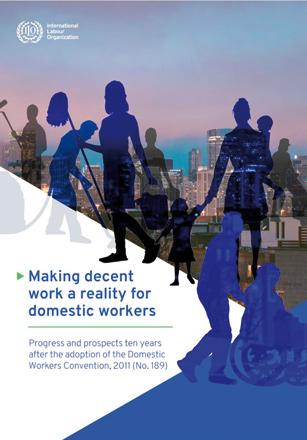- Local News
- Thu-2021-06-17 | 02:19 pm

Nayrouz News Agency :
The COVID-19 pandemic has further exacerbated the working conditions of domestic workers, exposing the "precarious position” they usually find themselves in, according to the International Labour Organisation (ILO).
On the 10th anniversary of the adoption of the Domestic Workers’ Convention, "the crisis has highlighted the urgent need to formalise domestic work to ensure their access to decent work, starting with the extension and implementation of labour and social security laws to all domestic workers,” said ILO Director General Guy Ryder.
On Wednesday, sociologist Hussein Khozahe told The Jordan Times over the phone that amid the ongoing pandemic, domestic violence in Jordan increased from 21 per cent to 33 per cent, noting that domestic workers, who are mainly women, are considered part of the family, putting them in an extreme risk of being exposed to violence.
"For many domestic workers here in Jordan, the situation has become worse, as many of them now with the pandemic shoulder greater responsibilities,” Khozahe added, noting that as they are considered part of the family, any change that happens in the household also affects them.
According to a recent ILO report, titled "Making decent work a reality for domestic workers”, the "devastating” pandemic has highlighted the vital role of domestic workers in supporting the care needs of households.
The report assesses how far domestic workers enjoy decent work, both in law and in practice, as well as measures the extent to which countries have extended their labour and social security laws to cover domestic workers.
New estimates show that more than 80 per cent of the world’s 75.6 million domestic workers are in informal employment. Their wages and working hours, on average, are far less favourable than those of other workers.
"A staggering eight out of every 10 domestic workers are informally employed and thus lack effective labour and social protections,” the report said. Domestic work is an important source of employment, representing 2.3 per cent of total employment worldwide
Domestic workers represent one-third of female employment in the Arab states, according to the report, which also added that among male domestic workers, the largest group can be found in the Arab states (23.2 per cent).









